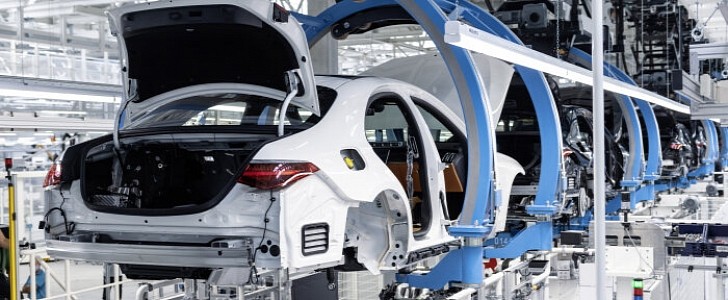The global chip shortage keeps wreaking havoc pretty much in every single industry out there, including in the automotive market where carmakers are struggling to find a way to keep their operations unaffected.
Just last week, Ford announced new production adjustments impacting the new F-150 truck, as the American carmaker doesn’t have enough semiconductors to power all the systems installed on the vehicle.
The chip problem started in early 2020 when the health crisis forced more people to work remotely, therefore fueling a massive sales boost recorded by nearly all the electronics out there. Chip foundries have therefore recorded a major increase in orders, so aligning the production with the demand became harder and harder.
Industry experts suggested the chip shortage wouldn’t last longer than 2022, with some indicating that the whole thing could start easing up in late 2021. This is because more companies are investing in the manufacturing of chips, with some of them, such as Intel, planning to build semiconductors specifically aimed at the car market.
Xiaomi, one of the world’s largest tech companies, previously predicted the lack of chips would continue until next year, with signs of recovery to already be recorded by most industries in the first months of 2022.
Richard Barnett, CMO of industry analysis firm Supplyframe, recently explained the global chip crisis wouldn’t come to an end too soon. And what’s worse, he believes the lack of semiconductors would last well into 2023, which means carmakers might be forced to continue the struggle for at least two more years.
The shortage and the recovery would both happen in waves and will alternate as the demand for chips increases. For example, the arrival of the new iPhone generation is expected to impact all industries, as foundries are working around the clock on building the necessary chips for Apple, which is typically one of the largest customers and is known for its tight control of the supply market.
Regardless of who is right, however, it’s pretty clear the global chip shortage wouldn’t come to an end too soon, and changing the business model and building up semiconductor inventories seems to be the best way to go for the entire industry.
The chip problem started in early 2020 when the health crisis forced more people to work remotely, therefore fueling a massive sales boost recorded by nearly all the electronics out there. Chip foundries have therefore recorded a major increase in orders, so aligning the production with the demand became harder and harder.
Industry experts suggested the chip shortage wouldn’t last longer than 2022, with some indicating that the whole thing could start easing up in late 2021. This is because more companies are investing in the manufacturing of chips, with some of them, such as Intel, planning to build semiconductors specifically aimed at the car market.
Xiaomi, one of the world’s largest tech companies, previously predicted the lack of chips would continue until next year, with signs of recovery to already be recorded by most industries in the first months of 2022.
Richard Barnett, CMO of industry analysis firm Supplyframe, recently explained the global chip crisis wouldn’t come to an end too soon. And what’s worse, he believes the lack of semiconductors would last well into 2023, which means carmakers might be forced to continue the struggle for at least two more years.
The shortage and the recovery would both happen in waves and will alternate as the demand for chips increases. For example, the arrival of the new iPhone generation is expected to impact all industries, as foundries are working around the clock on building the necessary chips for Apple, which is typically one of the largest customers and is known for its tight control of the supply market.
Regardless of who is right, however, it’s pretty clear the global chip shortage wouldn’t come to an end too soon, and changing the business model and building up semiconductor inventories seems to be the best way to go for the entire industry.







